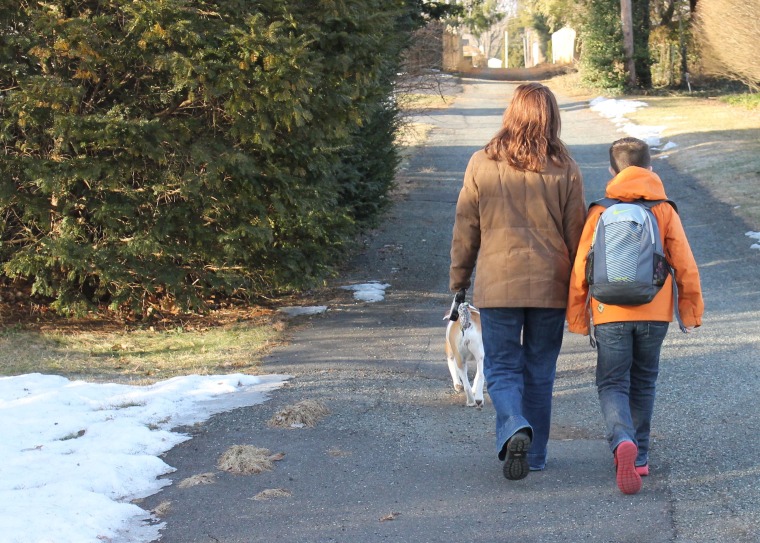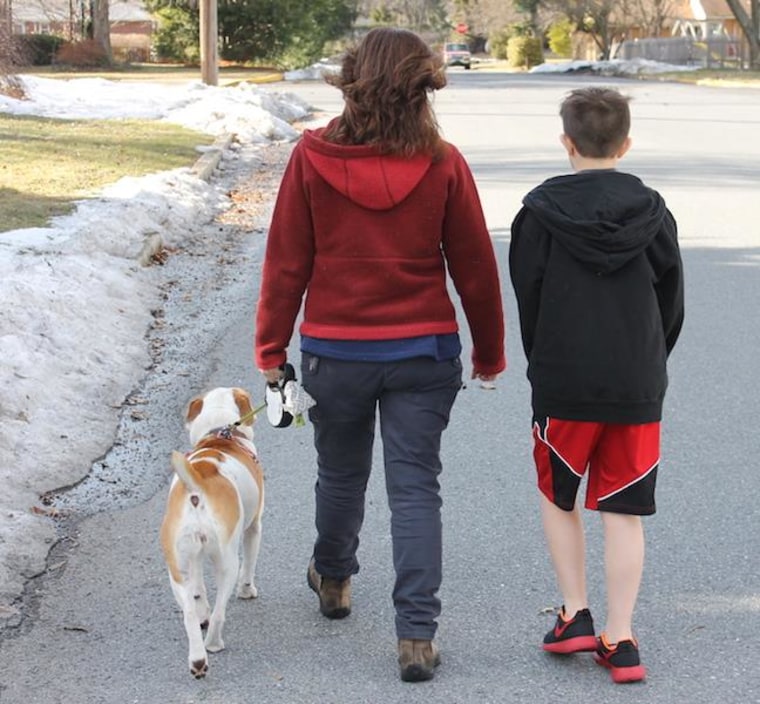Ever since Maryland child protective services accused Danielle and Alexander Meitiv of child neglect after the couple let their two kids walk home alone from a park, I’ve watched as a strange tug-of-war has taken place among parents.
On one side of the rope are “free range” parents like the Meitivs and many of my closest friends who believe children can learn self-reliance and independence by walking to school alone.
On the other side? Parents like me, I suppose. I still walk our 5th grader to school.

The proponents of free-range parenting might tell you that my 10-year-old son is old enough to walk without me. According to their comments in my Facebook stream, I get the impression they think my continued presence is destroying my son’s autonomy, and that parents like me are overprotective and overly paranoid about “stranger danger.” We’re what’s wrong with American parenting.
And, to some extent, I agree. Yes, my son is old enough to walk to and from school alone.
But what free-range parents are wrong about is this: Why I choose to go with him.
I’m not afraid of him being kidnapped.
I’m not worried what other parents will think of me.
I don’t believe he needs me. I do trust him to make good decisions.
The reasons I accompany him are simple: I enjoy it, I have the time, I need the exercise and he doesn’t mind me being there. It’s during the walks to and from school that my son is his most talkative. For instance, a few days ago, we spent a good half-mile debating how it is that a dog — who walks on four legs — could spin out on ice more than a human who walks on two. We still don’t know the answer.

Free-range proponents are also wrong about something else. I’m not inhibiting my son’s independence. Nor am I helicoptering. Our son is an independent thinker. This is a kid who chooses his hobbies, his friends, his school interests, and his clothes, among many other autonomous decisions. When he forgets to bring home an assignment or a folder, I let him solve that problem on his own. He always does, usually by calling or messaging a friend.
He does his homework on his own, and I don’t check it. I don’t have to. He gets As and is in the gifted program. He doesn’t need my help.
Me walking him to school will not undermine any of that.
What most fascinates me about this walking to school debate is this: that we are having a debate at all.
The research is quite clear on what does and does not harm children. In the harmful category are things like copious quantities of soft drinks, second hand smoke, and too much screen time. In the beneficial category you’ll find fruits and vegetables, physical activity, and unconditional love.
Whether you walk your kid to school, however, is not the same as whether your house is smoke free or your child spends every afternoon in front of the TV. Children are just as likely to benefit from a parent’s presence on the way to school as to benefit from a parent’s absence. In other words, one parent’s decision to walk with a child can be just as right as another parent’s decision not to.
In the case of the Meitivs, I think the Maryland CPS may have made a mistake in charging them of negligence. According to news reports, the Meitivs knew where their children were and had carefully weighed whether they were ready to walk alone. This wasn’t a case of neglect. If anything, it was the opposite: two intelligent people who put a lot of thought into what is right and not right for their kids.
It’s no different than me putting thought into what’s right for my kid. The Meitivs and I may be making very different decisions, but that doesn’t mean that one family’s decisions are right while the other family’s decisions are wrong.
If we’d just drop the rope and end the tug of war, what we may all see: We’re all good parents, even though we may be raising our kids very differently.